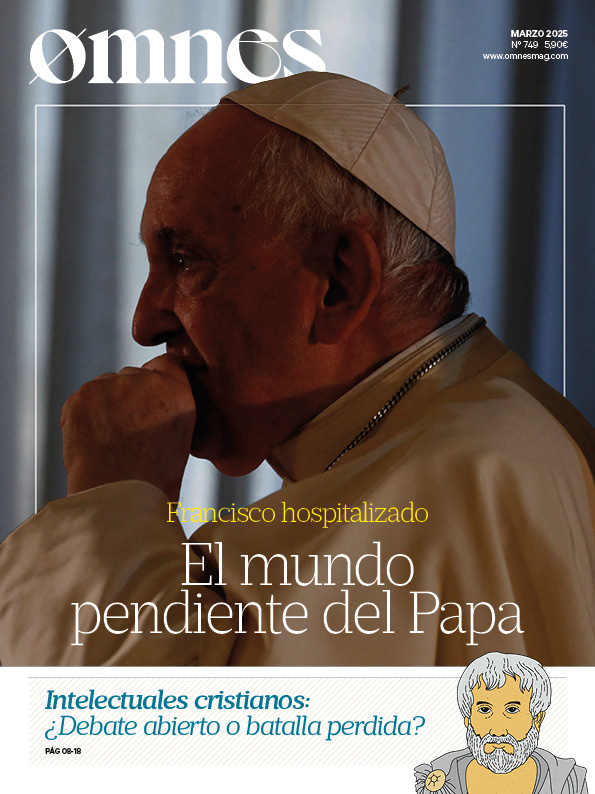The term "Theology of the Body" refers to the first and great teaching of John Paul II during his years of pontificate, the greatest in the Magisterium of the Church dedicated to a single theme. From September 5, 1979 to November 28, 1984, mostly through Wednesday audiences, 134 catecheses on the person, love and life, virginity for the Kingdom, marriage and fertility were given to us by the "Pope of the family". The first ones began in preparation for the 1980 Synod of Bishops on marriage and the family ("De muneribus familiae christianae"), and all of them came to an end after the publication of the Exhortation "Familiaris consortio" (fruit of the work of this synod).
November 28, 1984 "Theology of the Body" is born.
On November 28, 1984, with the title "Concluding synthesis: answers to the questions on marriage and procreation in the biblical-theological context."John Paul II preached the last catechesis of his "Theology of the Body".; with her, the Theology of the Body was given birth; we could see her face.
In this same text, John Paul II baptized his doctrinal legacy as "Human Love in the Divine Plan" and "The Redemption of the Body and the Sacramentality of Marriage".. He did not baptize it as "Theology of the Body": the term "Theology of the Body" was used for the term "Theology of the Body". was justified as a necessary concept in order to be able to base, on a broader basis, all his teaching.
In this latest catechesis, the Pope also shared the structure and method of his "Theology of the Body". The doctrinal content was divided into two parts: the human person and his vocation to love. As a method, the light of revelation illuminating the reality of the body and vice versa - what he himself called, on other occasions, the "proper anthropology".
In the wake of "Humanae vitae".
As we can see, this catechesis of November 28, 1984 was key within the whole catechetical body, above all, because in it - after five years - Pope John Paul II opened his heart and revealed his intention by communicating to the Church and to the world that all the reflections in this document constituted a broad commentary on the doctrine contained in the "misunderstood encyclical 'Humanae vitae'"., the encyclical of St. Paul VI on "the very grave duty of transmitting human life". ("Humanae vitae tradendae munus gravissimum").).
The "Theology of the Body" came to remind us that, in the encyclical "Humanae vitae"., the fundamental question is the authentic development of man, a development that is measured by "ethics" and not only by "technology. John Paul II, concluding this catechesis of November 28, 1984, stressed that in contemporary civilization, especially in the West, there was a hidden and explicit tendency to measure man's progress with the measure of "things", that is, material goods, when the measure of man's progress should be the "person".
Finally, John Paul II's 134 catecheses and their nearly 600 pages ended with these words: "In this area [referring to the biblical-theological area] are found the answers to the perennial questions of the conscience of men and women, and also to the difficult questions of our contemporary world regarding marriage and procreation". These were questions with theological answers.
November 28, 2024: the beginning of a new springtime for Christianity
And now, on November 28, 2024, forty years after that last catechesis, the questions about love, life, the person, sexual difference, marriage, sexuality, procreation, celibacy... continue. Where have their answers gone? Are they still theological? What does the "Theology of the Body" contribute to the new questions - the utopia of neutrality, gender ideology, transhumanism...?
Christoper West, the greatest popularizer of the "Theology of the Body" of our times, founder and director of the "Institute for the Theology of the Body", is the founder and director of the "Institute for the Theology of the Body". of Philadelphia, in a interview for Aceprensa last October he stated: "The 'Theology of the Body is a very well thought-out and convincing response to this whole crisis (...) For such a moment as this, we have been given John Paul II's Theology of the Body. It is the theological antidote, but it has not yet been really injected into the bloodstream of the Church. When it does, we will see the new springtime of Christianity that John Paul II presaged."
The "Theology of the Body" is a gift to the Church and to the 21st century.
Yves Semen, in the introduction to his book "Spousal Spirituality according to John Paul II"., states that John Paul II gave the "Theology of the Body" to the Church and the world of the 21st century: "Of the 21st century, and not of the 20th century".
Along the same lines, George Weigel, in his work "Biography of John Paul II, Witness of Hope," affirmed that the "Theology of the Body" was "a theological bomb with a delayed effect that could explode with spectacular effects throughout the third millennium of the Church. This is an affirmation that is already a prophecy: more and more realities of our days (pastoral, academic, social...) turn to the teachings of John Paul II with the need to illuminate their experiences in the light of revelation; its anthropological and theological beauty explodes the desires of those who approach it in search of a higher Desire...
It only remains for us to be able to contemplate these "spectacular effects" ("the springtime of the Church"), and for wonder to return our bodies to us as they were loved, created and redeemed; to be, finally, resurrected in Glory.
Formation and accompaniment: courtship and marriage.








